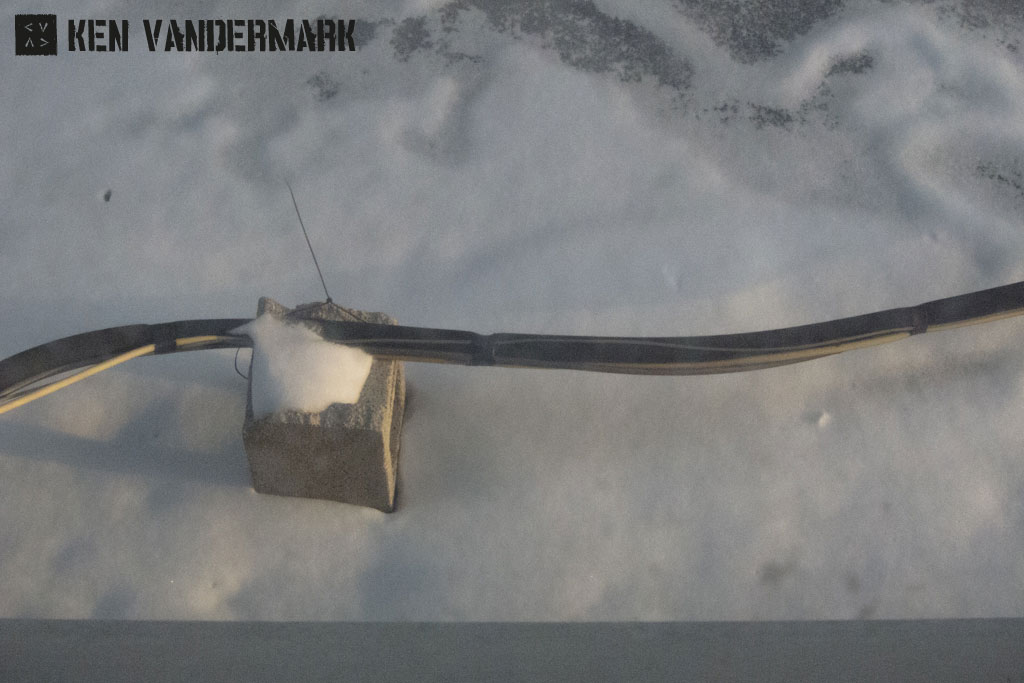

When it comes to poetic justice, Ryan Schreiber is second only to God. Ever wonder why it takes him so long to get our discs to us to review? Because he’s portioning out holy recompense for each of our virtues and each of our transgressions. Every time he sends out that big list of review discs to the Pitchfork writers he seems to say, just like God: “I have set life and death before you this day. Choose life.” I have actually caught him on occasion wearing an oversized white t-shirt with CHOOSE LIFE written in big letters, to reinforce his message. I asked if he had any fingerless fluorescent gloves to go along with it and he punched me in the stomach. I asked him to “help me up before you go-go” and he kicked me in the back. I swear if it weren’t for all the money and the floozies, I’d have a good mind to quit this job.
Ah, poetic justice! Not the casual ass-whooping– those are just par for the course. Rather the irrevocable fact that I am inevitably compensated for my pretensions with every piece of avant-jazz, experimental noise or Kranky-style cerebral post-rock that traffics through the front offices at One Pitchfork Way. Every shipment of discs I get seem to scream: deconstruct this, you prick! And so, I find myself on the business end of an OED and a dog-eared copy of Adorno, trying to come up with two dozen different ways of saying the word “groove” without being implicated in a bourgeois aesthetic ideology. Goddamnit, how many discs can I describe as “Kafkaesque” without eventually losing every last shred of credibility? I don’t even know what rock music sounds like anymore.
What’s in the mail today? A McArthur fellow fronting reinterpretations of the free jazz work of an obscure Jamaican alto player. See what I mean?
The contributions of Joe Harriott (1928-1973) to the free-improv movement have largely gone unnoticed. Branded a follower of the celebrated free jazz pioneer, Ornette Coleman, Harriott didn’t live long enough– nor famously enough– to have the world take pause at his radical innovations in modal jazz. Students now suggest that the London-based Harriott and the American Ornette developed their compositional and improvisational technique in near-total isolation from one another, advocating a strong review of Harriott’s ideas in light of his removal from the American free jazz scene of the 1960’s.
Like John Zorn’s hyperkinetic 1989 Spy vs. Spy, a furious reinterpretation of Ornette Coleman’s work as composer, Ken Vandermark’s Joe Harriott Project isn’t offering a tribute, but a retelling. Harriott’s arrangements are transformed into Vandermark’s spacious and disconnected lines. The signature piano of Harriott’s work is absent, and the alto is augmented by clarinet and trombone duels intertwined in the rhythm. The album exudes a beatnik vibe of radical ease.
Vandermark’s staccato sax lines suggest a Joe Harriott refracted through the work of another short-lived horn player, the immortal Eric Dolphy. The sparse angular attack is always executed with meticulous control, free from any trace of the excess or self-indulgence that seems to mar other contemporary exercises in collective improvisation. Even the fragmented “Shadows” remains intensely lyrical, while the defiantly looping “Straight Lines” is reminiscent of the near-perfect Oliver Nelson album, The Blues and the Abstract Truth, in muted uprising and subdued discord. Jeb Bishop’s quiet trombone solo on the title track is one of the album’s simple highlights. The entirety of Straight Lines revels in the glory of revision: the giddy thrill of hearing for the first time what the world was formerly deaf to.
As for me, I can’t complain. I thrive on precisely this kind of music, this marriage of melody and resistance. Sure, it sounds like a boulder slipping down from the top of a great hill in hell, but for a sound this strong, I’m willing to go back down to the bottom again.
By Ben Sirota
Originally published 10/19/1999 in Pitchfork Magazine
© 2024 Ken Vandermark – musician & composer | Disclaimer